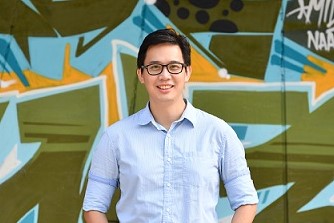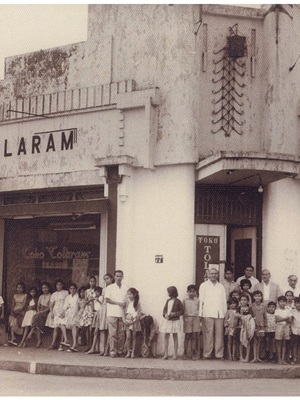When the COVID-19 crisis first surfaced in 2020, our immediate concern at Ya Kun was to ride it out while adapting to the ever-changing landscape and new government directives. As we recognised that the crisis might last for more than a few months, every measure we took had to be sustainable for both our company and its staff. In other words, we sought to preserve our business viability, and ensure the health and livelihood of our staff.
To maintain our business viability, we prioritised speed in the adaptation of our operations to keep them running. We optimised manpower deployment and manufacturing and retail operations by focusing on key menu offerings, strategic outlets and partnerships with delivery platforms.
It was essential to my team and me that everyone in our workforce retained their livelihood. To achieve this, our staff had to be willing to tighten their belts to keep everyone’s jobs intact and allow us to rebound quicker and better. Our entire staff took a pay cut to protect the whole team. Because of everyone’s sacrifice, no one was furloughed or retrenched, and everybody continued to receive a paycheck.
Solidarity and trust are core to our culture; from board member to frontline staff, we are all in this together.
Our interconnected business ecosystem
Even before the circuit breaker measures eased, I recognised the long recovery curve businesses would face as they progressively returned to pre-crisis productivity.
Two years on, the F&B landscape continues to face headwinds beyond the Singapore government’s support scheme. However, I also believe that the government cannot support businesses forever. Digging into our nation’s reserves is not a long-term solution. Instead, everyone must pitch in to help the economy and businesses recover. From suppliers to landlords, employees to business owners, managers to boards — if we could all tighten our belts along the way, nobody has to tighten his or her belt one hundred per cent. Businesses do not operate as single entities and are the main economic driver. The business community must operate with the mentality of an interdependent ecosystem. For example, landlords may have to reduce rents, suppliers may have to accept lower margins, and businesses like Ya Kun will then be able to take these savings to ensure the livelihood of our employees, who will, in turn, continue to have the ability to spend. This will keep the economy going.
Ya Kun’s response has been ecosystem-driven, instead of profit-driven. Even when other F&B businesses had to cease operations temporarily, our team instructed our managers not to overstaff outlets nor to engage in promotions that would overtax our staff. After all, we are all part of the community and the ecosystem.
Laying the foundation: communication and ownership
When we dealt with the rapidly evolving crisis in its first stages, we prioritised setting up a clear and regular internal communication structure. When making a difficult decision, those impacted by the decision had to first understand the basis and intent of the decision. For example, when a management decision on which outlets to close and who to redeploy was made, we explained it to everyone to avoid discontent and misunderstanding.
Frequent communication is key to ensuring that the management team remains well-coordinated in our response strategies and stays updated on every front. When there is a lack of communication, misalignment soon follows. This leads to conflicts, which impact speed and productivity.
We seek to empower the middle and senior management to make decisions previously made at the board level. This helps drive agility and reaction speed, since the heads of departments are the ones working on the ground and have the most relevant insights to make the best decision. When they are authorised to make the call, it not only speeds up the decision-making process, but also allows them to develop their leadership capacities.
We also believe that fostering a sense of ownership among our staff is incredibly important because teamwork and partnerships are crucial to our survival and success.
Leading by example
In April 2020, we launched the initiative “Gift a Kaya Toast Set” and personally funded the first 200 sets. Supporting this initiative was very straightforward — one simply purchased our kaya toast sets, and then Ya Kun distributed the packs to families whose livelihoods were impacted by the pandemic. After only two months, we gifted over 1,300 sets, focusing on children and youth. Later, we set up another initiative focusing on the frontline workers themselves. We sought to connect the community to those working on the frontline through our “Fuel a Frontliner” initiative. People could purchase a cup of coffee for a frontliner, which we then delivered to various locations across Singapore. It was heartwarming to see how many friends and strangers came forward for both of these projects, keen to help those in the community most in need and boost the morale of hardworking frontliners, to be part of the solution.
I believe that leading by example is the way to inspire positive action among our communities. Building trust is how we can get through crises in one cohesive effort. Even though I may be deciding on behalf of my employees, I am also affected. I want them to know that when I say we are in this together, I mean it!
Posted 01/02/2023
















